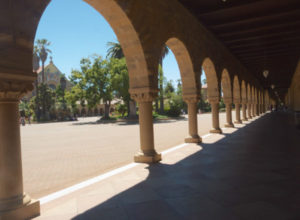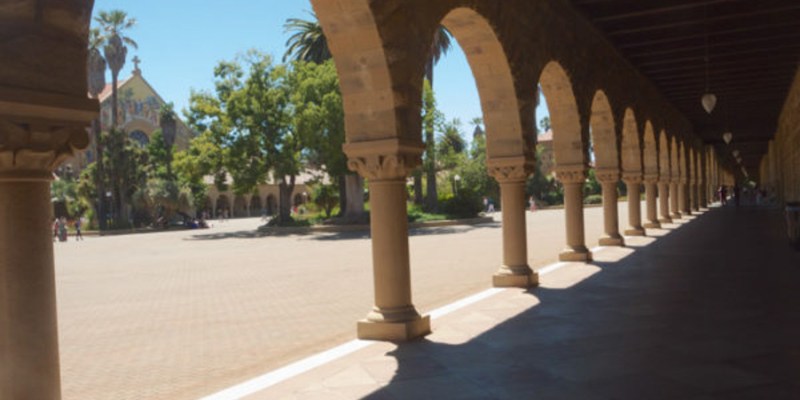On Tuesday evening, the recently-formed Provost’s Committee on the Campus Climate Survey hosted a town hall meeting to discuss how the committee should approach the survey, which gathers data on instances of sexual violence on campus.
The 12-person committee comprising faculty, staff and students was officially announced Wednesday, Jan. 31. Tasked with reporting to Provost Persis Drell on the feedback received during town hall meetings, the group was formed last quarter and was represented at Tuesday’s town hall by four members of faculty and the University administration, including biology professor and committee chair Susan McConnell.

The Campus Climate Survey was first distributed to Stanford students in 2015, with the University promising to conduct one every three years. One of the major topics discussed was whether Stanford should administer the survey at all this spring, which would allow the University to adhere to the time commitment, or wait until next year and conduct a survey provided the Association of American of Universities (AAU). The AAU survey is used by many of Stanford’s peer institutions, and the Stanford student body has expressed a significant preference for it as opposed to the Stanford version in the past. Over 90 percent of undergraduate students recommended that the University adopt the AAU survey in a 2016 referendum.
Chloe Hart, a third-year PhD candidate in sociology who attended the town hall, said she supports Stanford using the AAU survey instrument when it becomes available next year, citing “high demand by people who have compared both surveys and the undergrad student body.”
The University also has the option of conducting a survey two years in a row, using its own survey this year and the AAU survey next year.
“One concern I would see is participation rate, or dumping all the resources into this first survey,” Hart said regarding that option, adding that “as long as that’s addressed I think the more surveys the better.”
Another topic that arose during the meeting was the possibility of using a third survey instrument developed by Administrative Researcher Campus Climate Collaborative (ARC3).
“If the university is going to do a new survey this year, it needs to be the ARC3 survey, and then do the AAU survey next year,” Baiza wrote in an email to The Daily. He also added that he believes Stanford should not conduct its own survey this year because, “there is not enough time and there are too many methodological flaws.”
Many students at the town hall meeting also said that the survey should change its definition of incapacitation to include people under the influence of drugs and alcohol. Currently, Stanford includes “inducement of incapacitation or knowingly taking advantage of an incapacitated person” prior to intercourse, digital penetration, oral copulation or penetration with a foreign object in its definition of sexual assault. Critics of Stanford’s survey cite its relatively strict definition of incapacitation as part of the reason Stanford reported a sexual assault rate of 1.9 percent while other peer institutions that used a broader definition had rates that averaged 11.7 percent.
McConnell, who emphasized that no further decisions have been made yet about the future of the Campus Climate Survey, described the meeting as “extraordinarily helpful.”
“The fact that students with expertise in survey methodology came to this meeting was a gift,” she said.
Some at the meeting however, said that the town hall should have been held much earlier. Matthew Baiza ’18, co-founder of Stanford Associated Students for Sexual Assault Prevention (ASAP) described the meeting as “productive but also frustrating.”
“It’s been two-and-a-half years of students and community providing feedback,” Baiza said. “So it’s surprising that now is the point where we’re having town halls.”
McConnell attributed the delay to lack of action from the AAU.
“We were interested in knowing whether or when there might be another AAU survey, knowing and understanding the student level of interest in that survey,” McConnell said. “A lot of discussion was happening nationally about whether or not there was going to be an AAU survey, and no decisions were being made.”
She added that the office of the Provost decided to create the committee without a decision from the AAU, which finally announced that they would be conducting a survey in 2019. According to McConnell, that announcement came a day before the the first meeting of the Provost’s committee.
Contact Michael Espinosa at mesp2021 ‘at’ stanford.edu.
